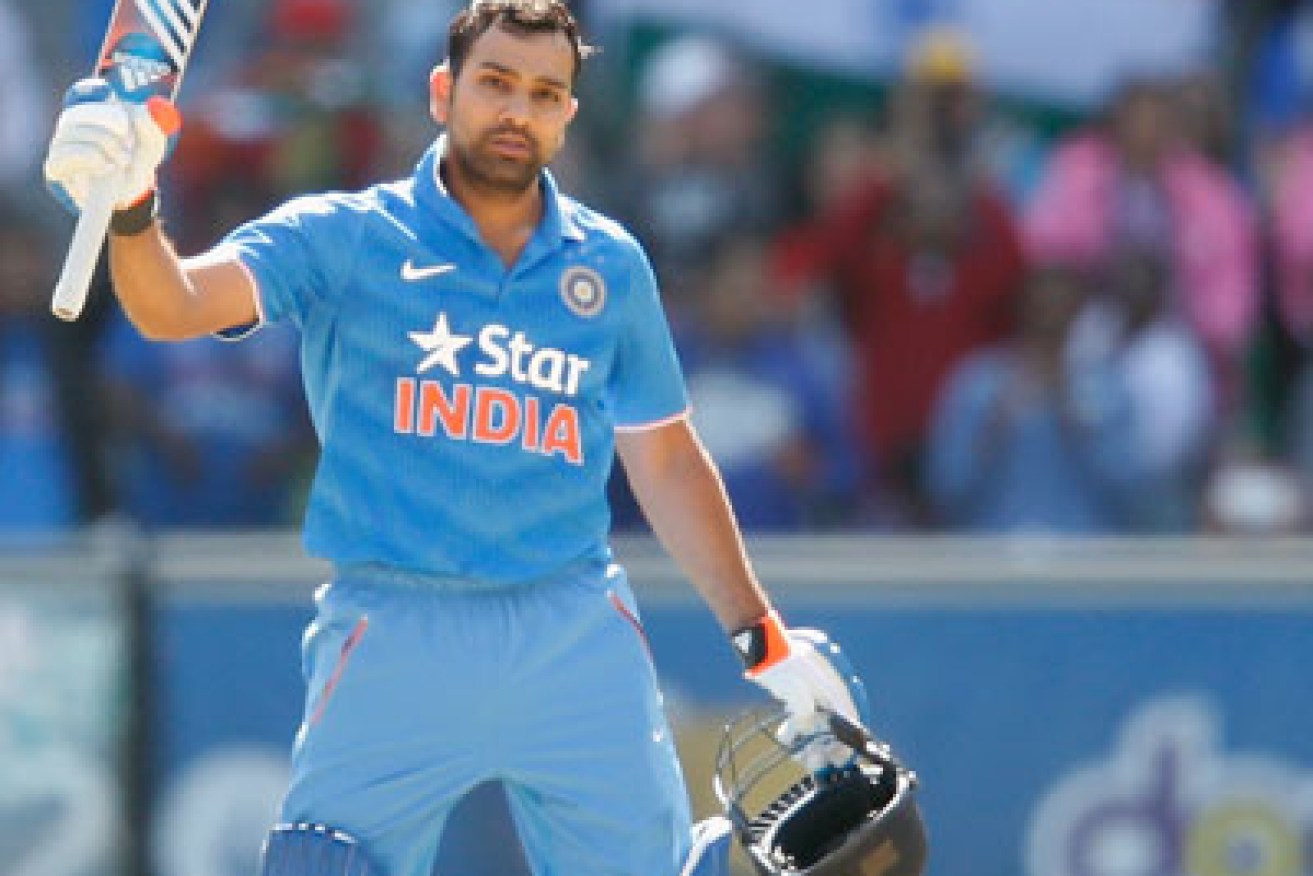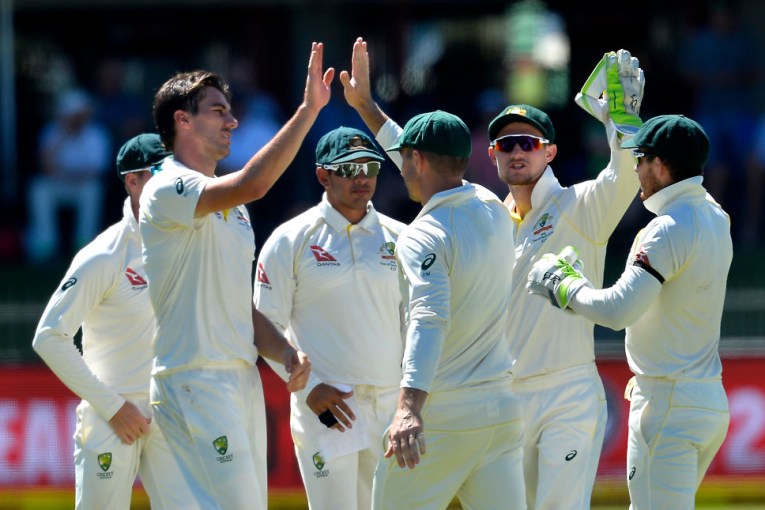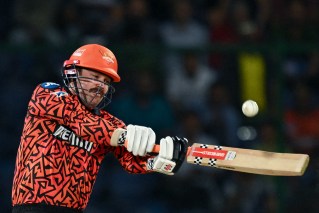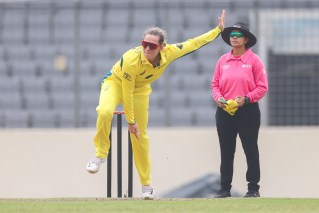Speak English? Warner should just shut his trap


Rohit Sharma is capable of sledging in all manner of languages. Photo: Getty
If David Warner plays by his own rules of sledging, he has no shortage of options when he next verbals Rohit Sharma.
He could use Marathi, the language of Sharma’s home city of Mumbai and many of India’s greatest poets and other notables, such as Sachin Tendulkar.
If he is feeling a little funky, he could try Telugu, the Dravidian language spoken by Sharma’s mother Purnima, who hails from Visakhapatman in Andhra Pradesh.
The more obvious option would be Hindi, which with 260 million speakers is the fourth most commonly spoken language in the world.
Probably, though, he will avoid the bother and stick to English. After all, Sharma speaks that too.
• Stop looking for trouble, board tells Warner
• David Warner fined over ‘speak English’ sledge
• AB de Villiers smashes fastest century in ODI
• Nervy Australia chases down India at MCG
Which is all a rather smartarse way of drawing attention to the cultural arrogance of Warner’s “speak English” demand of Sharma at the MCG on Sunday.
Warner’s conduct was wrong on so many levels and warrants more than a fine from the ICC.
Cricket Australia, which is acutely aware that it needs to broaden its hitherto largely whitebread supporter and player base, needs to take strong action by suspending Warner for a match.
Instead, we heard more of the usual macho stuff about how Australian cricketers will continue to play aggressively while not crossing “the line”.
“David is an aggressive character and we support that,” Australian coach Darren Lehmann said in Melbourne.

Rohit Sharma is capable of sledging in all manner of languages. Photo: Getty
“If the ICC decide it’s not in the spirit of the game or we cross the line, they’ll come down on us.
“We’re always going to teeter pretty close to it – that’s just the way we play – but we’ve got to make sure we don’t cross it.”
No acknowledgement that the sight of an Australian cricketer demanding a visitor to our shores address him in his non-native tongue – in response to being sledged, no less! – is entirely inappropriate and paints the hosts in a poor light to the hundreds of thousands watching live around the world, not to mention those Indians who now call Melbourne their home and made the journey to the MCG.
In many respects, this was a worse moment for Warner than snotting Joe Root in an English bar.
Not that he realises it.
Warner’s response was laughable.
He had the gall to speak of cricket “etiquette”, and then declared that he “did the polite thing” by asking Sharma to speak English. He would be well advised to watch the replay and look up “polite” in the Macquarie.
As for etiquette, Warner was discussing the accepted practice that players do not run when the ball ricochets off the batsman during a run out attempt. The only problem was that the ball did not ricochet off Sharma.
Warner explained that some of his teammates said otherwise and he took their word for it.
The last thing cricket needs is vigilantes like Warner dispensing their own form of summary justice for supposed breaches of etiquette based on the dubious testimony of teammates.
Not long ago, Ian Chappell warned that there was now so much abuse that the game could descend into fisticuffs.
Watch the replay of Sunday’s fracas closely and you will see Indian batsman Suresh Raina give Warner a little nudge to keep him away from Sharma. Spot fires also broke out with Glenn Maxwell and Shane Watson.
In this context, Chappell’s warning does not seem so far-fetched.
Of course the Indians have hardly been blameless in the sledging stakes this summer. They have probably out-sledged the Australians, a problematic achievement.
But this latest embarrassment is of a different hue.
And this is not merely a subcontinental whinge.
If you want the view of a respected, independent observer, read this withering assessment of Warner by the New Zealand great Martin Crowe.
Warner would do well to check it out and change his ways. After all, it is written in plain English.








